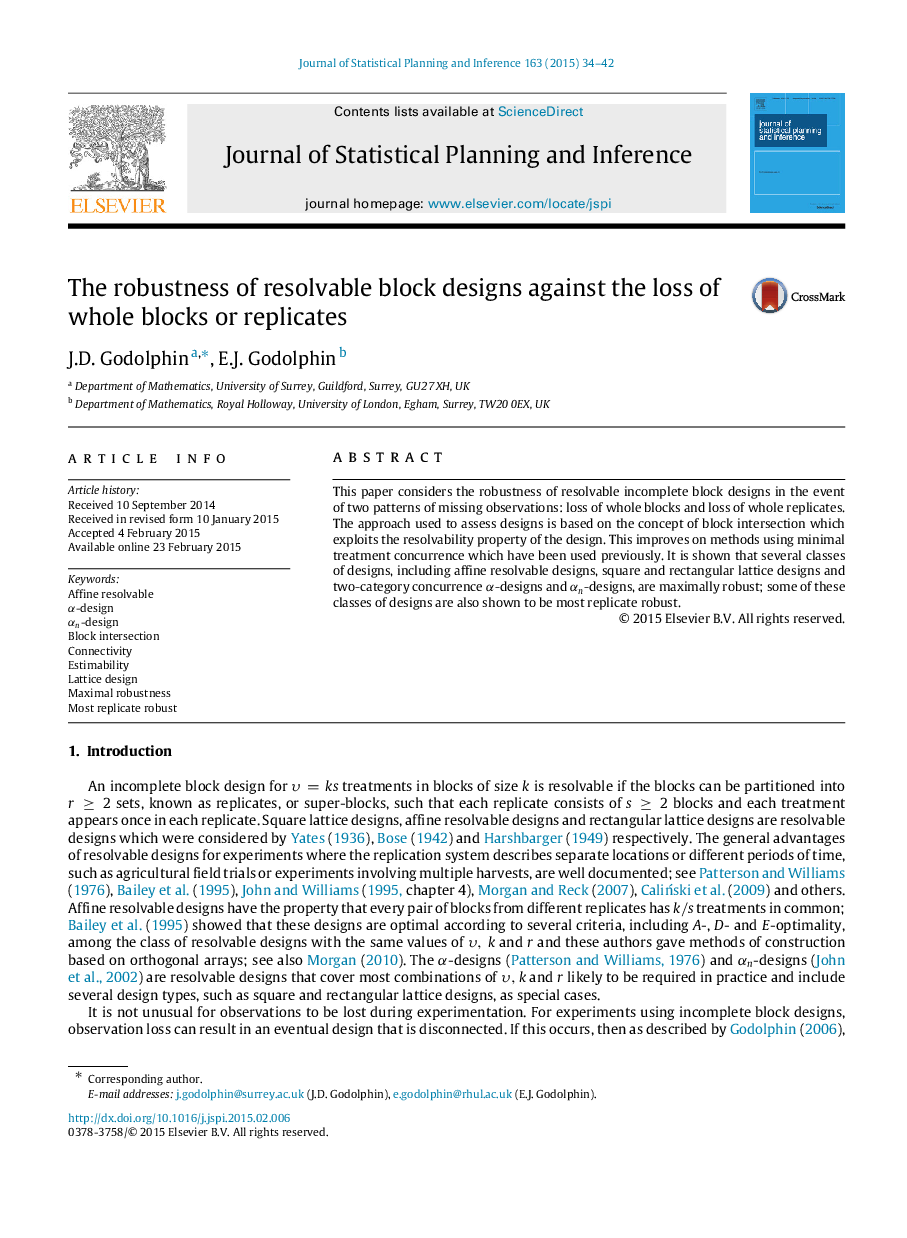| Article ID | Journal | Published Year | Pages | File Type |
|---|---|---|---|---|
| 1147640 | Journal of Statistical Planning and Inference | 2015 | 9 Pages |
•The focus of the work is determination of the effects of two types of observation loss on resolvable designs involving blocking: loss of whole blocks and loss of whole replicates.•It is intended that use of the results at the planning stage can ensure that a resolvable design which is used for experimentation has as small a probability as possible of giving rise to a disconnected eventual design, in the event of observation loss of the types specified.•The approach uses graph theory and the concept of block intersection.•Conditions are obtained for resolvable designs to have desirable robustness properties, namely of being maximally robust or most replicate robust.•It is established that specific design classes, e.g. affine resolvable designs, have good robustness properties.•Conditions are obtained for αα and αnαn designs to be maximally robust and for αn(0,1)αn(0,1) designs to be both maximally robust and most replicate robust.
This paper considers the robustness of resolvable incomplete block designs in the event of two patterns of missing observations: loss of whole blocks and loss of whole replicates. The approach used to assess designs is based on the concept of block intersection which exploits the resolvability property of the design. This improves on methods using minimal treatment concurrence which have been used previously. It is shown that several classes of designs, including affine resolvable designs, square and rectangular lattice designs and two-category concurrence αα-designs and αnαn-designs, are maximally robust; some of these classes of designs are also shown to be most replicate robust.
